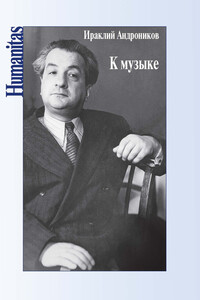182. Hutto D. Wttgenstein and the End of Philosophy. N.Y.: Palgrave MacMillan, 2003.
183. Hutto D. Knowing what? Radical versus conservative enactivism // Phenomenology and the Cognitive Science. 2005. Vol. 4. P. 389–405.
184. Hutto D. Radically Enactive Cognition in Our Grasp // The Hand, an Organ of the Mind – What the Manual Tells the Mental (ebook) / Ed. by Z. Radman. United States: MIT Press, 2011. P. 227–252.
185. James W. The Principles of Psychology. Cambridge (MA), L. (England): Harvard univ. press, 1981.
186. Johnson M. The Body in the Mind: The Bodily Basis of Imagination, Reason, and Meaning, Chicago: Univ. of Chicago press, 1987.
187. Johnson S. P. (Ed.) Neoconstructivism. The New Science of Cognitive Development. Oxford: Oxford Univ. press, 2010.
188. Jung C. G. Über die Psychologie des Unbewussten. Zürich und Stuttgart: Rascher-Verlag, 1943.
189. Kauffman S. At Home in the Universe. The Search for Laws of Self-organization and Complexity. L.: Viking, 1995.
190. Kelly G. A. The Psychology of Personal Constructs. N.Y.: Norton, 1955.
191. Kelso J.A.S. Dynamic Patterns. The Self-organization of Brain and Behavior. Cambridge (MA), L. (England): The MIT Press, 1995.
192. Kiecolt-Glaser J. K., Robles T. F., Heffner K. L., Loving T. J. & Glaser R. Psychooncology and Cancer: Psychoneuroimmunology and Cancer http://annonc.oxfordjournals.org/content/13/suppl 4/165.full.pdf
193. Kosslyn S. M. Image and Mind. Cambridge (MA): Harvard univ. press, 1980.
194. Kull K. Jakob von Uexküll: An Introduction // Semiotica. 2001. Vol. 134. N 1/4. P. 1–59.
195. Lakoff G. Women, Fire, and Dangerous Things. What Categories Reveal about the Mind. Chicago and London: The University of Chicago Press, 1987.
196. Lakoff G., Johnson M. Philosophy in the Flesh. The Embodied Mind and Its Challenge to Western Thought. N.Y.: Basic Books, 1999.
197. Lam L., Shu C.-Q., Bödefeld S. Active Walk and Path Dependent Phenomena in Social Systems // Nonlinear Physics for Beginners / Ed. by Lui Lam. Singapore: World Scientifc, 1998.
198. Laszlo E. The Chaos Point. The World at the Crosscoads. L.: Piatkus, 2012.
199. Legrand D. The Bodily Self: The Sensori-motor Roots of the Pre-refective Selfconsciousness. // Phenomenology and the Cognitive Sciences. 2006. Vol. 5. P. 89–118.
200. Le Moigne J.-L. Le constructivism. T. 1. Des fondements. Paris. ESF éditeur, 1994.
201. Le Moigne J.-L. Le constructivism. T. 1. Des épistemologies. P. ESF éditeur, 1995.
202. Le Moigne J.-L. Les épistemologie constructiviste en progrès // Entre systémique et complexité, chemin faisant… Mélanges en hommage à Jean-Louis Le Moigne. P.: PUF, 1999. P. 290.
203. Lewin K. Werkausgabe. Bd. 4: Feldtheorie. Bern: Hüber; Stuttgart: Klett-Cotta, 1982.
204. Leyland M. L. An Introduction to Some of the Ideas of Humberto Maturana // Journal of Family Therapy. 1988. Vol. 10. P. 357–374.
205. Llinas R. R. I of the Vortex. From Neurons to Self. Cambridge (MA): The MIT press, 2001.
206. Lorenz K. Die Rückseite des Spiegels. Versuch einer Naturgeschichte menschlichen Erkennens. München, Zürich: R. Piper & Co. Verlag, 1973.
207. Luhmann N. Soziale Systeme. Grundriss einer allgemeinen Theorie. Fr.a.M.: Surkamp, 1987.
208. Mare W. de la. Desert Islands. L.: Faber & Faber, 1932.
209. Markoff J. What the Dormouse Said: How the 60s Counterculture Shaped the Personal Computer Industry. New York: Viking Penguin, 2005.
210. Maturana H. R. Stratégies cognitive // LUnité de l’Homme. Invariants biologiques et universeau culturels. P.: Éditions du Seuil, 1974. P. 418–442.
211. Maturana H. R. The Nature of the Laws of Nature // Systems Research and Behavioral Science. 2000. Vol. 17, N 5. P. 459–468.
212. Maturana H. R. Self-consciousness: How? When? Where? // Constructivist Foundations. 2006. Vol. 1. N 3. P. 91–102.
213. Maturana H. R. The Biological Foundations of Virtual Realities and Their Implications for Human Existence // Constructivist Foundations. 2008. Vol. 3., N 2. P. 109–114.
214. Maturana H. R., Varela F. J. Autopoiesis and Cognition. The Realization of the Living. Dordrecht: D. Reidel, 1980.







